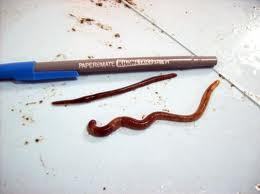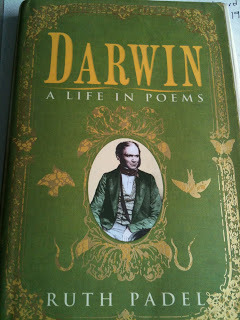Patrick Kanouse's Blog, page 55
May 17, 2011
Happy Birthday!
 Happy birthday my love! Every day with you is as bright and sunny and beautiful as this day!
Happy birthday my love! Every day with you is as bright and sunny and beautiful as this day!For all of you out there, yes, I have the best spouse ever! One I do not in the least deserve. I've always felt a bit like Ray Romano when he admits to Debra that he couldn't believe some one so awesome chose him.
I'm lucky, I guess!
Published on May 17, 2011 05:00
May 11, 2011
That Quote Is From.... #5
That Shakespearen insult "roast-meat for worms"is from Pericles, Act IV, Scene 2. Here's the larger context:

BOULT. Ay, to eleven; and brought them down again. But shall I search the market?
BAWD. What else, man? The stuff we have, a strong wind will blo it to pieces, they are so pitifully sodden.
PANDAR. Thou sayest true; they're too unwholesome, o' conscience. The poor Transylvanian is dead, that lay with the little baggage.
BOULT. Ay, she quickly pooped him; she made him roast-meat for worms.
But I'll go search the market.
Published on May 11, 2011 06:00
May 6, 2011
Poems That Mean Something: #1
I was reading an article the other day and here is a quote from it:
It seems more often than not in poetry that to talk of the "big" questions is taboo. I would say similarly that philosophy often thinks the same. The impulse to consider it taboo seems to stem either from the fact that the answers are unreachable or from the continuing specialization of roles in professional and academic circles. In response to the former, I respond that because the question is unsolvable does not make it unworthy of trying. To the latter, I would suggest that unity often is characteristic of meaning and beauty...and I place a lot of emphasis on beauty.
Meaning in life--no matter where or how we find it--is vital to us day in and out. And poetry can probe those meanings and bring about a discussion not only within a community context but within a private context. Poetry may not be the salve to our ills, but it is not less for trying to be so.
I still believe — however naively — that poems can speak to other human beings and can make collective society consider our own convictions, experiences, and beliefs.This quote is in the larger context of watching academic poets get lost in technical jargon, etc., and not talking about a poem's effect in the world and on readers. Without getting into the larger merits or lack thereof in the article, I found this statement resonant.
It seems more often than not in poetry that to talk of the "big" questions is taboo. I would say similarly that philosophy often thinks the same. The impulse to consider it taboo seems to stem either from the fact that the answers are unreachable or from the continuing specialization of roles in professional and academic circles. In response to the former, I respond that because the question is unsolvable does not make it unworthy of trying. To the latter, I would suggest that unity often is characteristic of meaning and beauty...and I place a lot of emphasis on beauty.
Meaning in life--no matter where or how we find it--is vital to us day in and out. And poetry can probe those meanings and bring about a discussion not only within a community context but within a private context. Poetry may not be the salve to our ills, but it is not less for trying to be so.
Published on May 06, 2011 06:00
May 5, 2011
Shakespeare Insult: #5
 Here is the second Shakespearean insult in a series:
Here is the second Shakespearean insult in a series:"Roast-meat for worms"
Can you name the play, act, scene, and speaker?
Published on May 05, 2011 06:00
April 19, 2011
Now It Must Dry
George Seferis wrote in his journal on October 31, 1946, wrote this about his work on his poem "Thrush":
Notice the emphasis is not on the evaluation of its quality or state; rather, its state in relation to the writer is emphasized. "It must dry," which we can interpret as a separation from the act of writing it. Only when distance between the act and the art is achieved by the poet can the poet really determine quality and state...though they may be mistaken. This is another version of Horace's admonishment:

I don't know if it's good; I don't know that it's finished. Now it must dry.This captures succinctly what writing poems is like for me, and what I think writing poems for many poets is like.
Notice the emphasis is not on the evaluation of its quality or state; rather, its state in relation to the writer is emphasized. "It must dry," which we can interpret as a separation from the act of writing it. Only when distance between the act and the art is achieved by the poet can the poet really determine quality and state...though they may be mistaken. This is another version of Horace's admonishment:
nonumque prematur in annum
membranis intus positis; delere licebit
quod non edideris; nescit uox missa reuerti.
Published on April 19, 2011 06:00
April 5, 2011
That Quote Is From.... #4
That Shakespearen insult "Long-tongu'd babbling gossip"is from Titus Andronicus, Act IV, Scene 2. Here's the larger context:
AARON
Why, so, brave lords! when we join in league
I am a lamb: but if you brave the Moor,
The chafed boar, the mountain lioness,
The ocean swells not so as Aaron storms.—
But say, again, how many saw the child?
NURSECornelia the midwife and myself;
And no one else but the deliver'd empress.
AARONThe empress, the midwife, and yourself:
Two may keep counsel when the third's away:
Go to the empress, tell her this I said:—
[Stabs her, and she dies.]
Weke, weke!—so cries a pig prepar'd to the spit.
DEMETRIUSWhat mean'st thou, Aaron? Wherefore didst thou this?
AARONO Lord, sir, 'tis a deed of policy:
Shall she live to betray this guilt of ours,—
A long-tongu'd babbling gossip? no, lords, no:
And now be it known to you my full intent.
Not far, one Muliteus lives, my countryman;
His wife but yesternight was brought to bed;
His child is like to her, fair as you are:
Go pack with him, and give the mother gold,
And tell them both the circumstance of all;
And how by this their child shall be advanc'd,
And be received for the emperor's heir,
And substituted in the place of mine,
To calm this tempest whirling in the court;
And let the emperor dandle him for his own.
Hark ye, lords; ye see I have given her physic.
[Pointing to the NURSE.]
And you must needs bestow her funeral;
The fields are near, and you are gallant grooms:
This done, see that you take no longer days,
But send the midwife presently to me.
The midwife and the nurse well made away,
Then let the ladies tattle what they please.
CHIRONAaron, I see thou wilt not trust the air
With secrets.
DEMETRIUSFor this care of Tamora,
Herself and hers are highly bound to thee.
AARON
Why, so, brave lords! when we join in league
I am a lamb: but if you brave the Moor,
The chafed boar, the mountain lioness,
The ocean swells not so as Aaron storms.—
But say, again, how many saw the child?
NURSECornelia the midwife and myself;
And no one else but the deliver'd empress.
AARONThe empress, the midwife, and yourself:
Two may keep counsel when the third's away:
Go to the empress, tell her this I said:—
[Stabs her, and she dies.]
Weke, weke!—so cries a pig prepar'd to the spit.
DEMETRIUSWhat mean'st thou, Aaron? Wherefore didst thou this?
AARONO Lord, sir, 'tis a deed of policy:
Shall she live to betray this guilt of ours,—
A long-tongu'd babbling gossip? no, lords, no:
And now be it known to you my full intent.
Not far, one Muliteus lives, my countryman;
His wife but yesternight was brought to bed;
His child is like to her, fair as you are:
Go pack with him, and give the mother gold,
And tell them both the circumstance of all;
And how by this their child shall be advanc'd,
And be received for the emperor's heir,
And substituted in the place of mine,
To calm this tempest whirling in the court;
And let the emperor dandle him for his own.
Hark ye, lords; ye see I have given her physic.
[Pointing to the NURSE.]
And you must needs bestow her funeral;
The fields are near, and you are gallant grooms:
This done, see that you take no longer days,
But send the midwife presently to me.
The midwife and the nurse well made away,
Then let the ladies tattle what they please.
CHIRONAaron, I see thou wilt not trust the air
With secrets.
DEMETRIUSFor this care of Tamora,
Herself and hers are highly bound to thee.
Published on April 05, 2011 06:00
April 1, 2011
And the winners...
This is no April Fool's joke: The winners of the B&N Gift Certificates for posting a review to BN.com are...

 OkieBKLVR
OkieBKLVR

 BadgerFM
BadgerFM
OkieBLVR and BadgerFM, please email me here to claim your prize!

 OkieBKLVR
OkieBKLVR
 BadgerFM
BadgerFMOkieBLVR and BadgerFM, please email me here to claim your prize!
Published on April 01, 2011 06:00
March 31, 2011
Teaching Creative Writing
 A friend gave me a link to Dave and Bill's Cocktail Hour blog, which led me to an article by Dave Gessner in The New York Times titled "Those Who Write, Teach" (you'll need nytimes.com password access for the article).
A friend gave me a link to Dave and Bill's Cocktail Hour blog, which led me to an article by Dave Gessner in The New York Times titled "Those Who Write, Teach" (you'll need nytimes.com password access for the article).This interesting article does not offer much in the way of new information, but that information is cogently presented and without rancor. To paraphrase, Gessner contends that creative writers teaching creative writing must be affected somehow by the activity. The consequences could include reading too much apprentice work, writing for quantity over quality, less time to write, and less time for reading overall. Gessner does not state that the effects are necessarily positive or negative (though he is not unbiased) and does not proceed down the path of assuming all creative writers teaching creative writing are the affected the same. Rather, his point is just there must be some affect, good or ill.
Not being a creative writing instructor (nor wanting to be--many years ago in considering graduate school, I was always interested in teaching literature), I think some more layers of paint can be added to Gessner's coverage. Let's face it, nearly every poet working in America cannot write poetry for a living. They must supplement their income by writing in paying fields (journalism, criticism, etc., the the "paying field" here is highly debatable...particularly the criticism), working a regular job (that is, bartending, corporation, etc.), working a creative writing academic job, working a non-creative writing academic job (that is, instead of teach creative writing student creative writing, teaching literature instead...or even something in chemistry, philosophy, etc.).
All of these have their consequences, nearly all related to less time for reading, to devoting to the craft, etc. And no one way is the correct way. Myself, not teaching creative writing helps me compartmentalize my corporate life from my writing life, something I have found essential. Some people comment to me that they don't understand how I read and write so much after spending eight or more hours a day reading and writing all day for my corporate job. My answer is that the type of reading and writing is so very different that, to me, they exist as essentially separate and unpolluting activities. Reading Tomas Transtromer
 is so radically different than reading Statement of Work PDFs that, well, they do not exist in the same "reading realm."
is so radically different than reading Statement of Work PDFs that, well, they do not exist in the same "reading realm."
Published on March 31, 2011 06:00
March 29, 2011
Shakespeare Insult: #4
[image error]
Here is the second Shakespearean insult in a series:
Can you name the play, act, scene, and speaker?
"Long-tongu'd babbling gossip"
Can you name the play, act, scene, and speaker?
Published on March 29, 2011 06:00
March 28, 2011
40th, Redux
 Well, I had thought my blogging about my birthday bash was over, but my brother was not yet done....
Well, I had thought my blogging about my birthday bash was over, but my brother was not yet done....See, my brother a few weeks prior to my birthday had inquired as to some of my favorite living poets. Thinking that my brother might be interested in reading some poetry, I leapt in with gusto: Jared Carter, Seamus Heaney, Davis McCombs, Pattiann Rogers, Ruth Padel, Ciaran Carson, etc.
As I reported last week, he had written to Pattiann Rogers and Ciaran Carson to obtain signed items (he knew I already had signed items from Carter and Heaney). Awesome, right?
He texted me this past week and wanted to stop by briefly (we live very close to each other, so stopping by is no large feat). Low and behold, he dropped off a UK edition of Ruth Padel's Darwin: A Life in Poems
 and a handwritten copy of the poem "Ola" from Davis McCombs's collection Dismal Rock
and a handwritten copy of the poem "Ola" from Davis McCombs's collection Dismal Rock .
. As I told Gina, I think I'll turn 40 every year!
As I told Gina, I think I'll turn 40 every year!
Published on March 28, 2011 06:00



